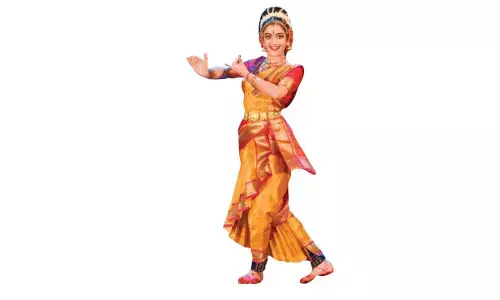Freelancing with a Regular Job? Here are options to save tax

Representational Image
In the wake of the first and second waves of the COVID-19 pandemic, taking jobs on a freelance model has turned into a promising pattern or work culture. Before discussing more on the different aspects of freelancing let me tell you what freelancing or freelance means.
In the wake of the first and second waves of the COVID-19 pandemic, taking jobs on a freelance model has turned into a promising pattern or work culture. Before discussing more on the different aspects of freelancing let me tell you what freelancing or freelance means. Freelancing means a situation in which an individual has been hired temporarily with a company to undertake and complete the specific assignment and get paid instantly on completion and submission of the assignment.
Now let's have a discussion on the same from various perspectives, specifically from the tax perspective.
Freelancer is not an employee of the company and so the person is not placed on its payroll and is neither entitled to get perks like Provident Fund, which is mandated under the Companies Act. At the same time, the person is also not supposed to go the offer and can complete the said assignment assigned to the person at leisure but as per pre-agreed guidelines from any place, he/she wants.
However, any income that is earned by displaying manual skills or intellectual skills falls within the purview of income from a profession as per existing income tax laws of India. Such income shall be taxable as Profits and Gains from Business or Profession.
So, the person's gross income shall be the sum of all the receipts that he/she gets while carrying out his/her profession.
Expenses allowed as deduction
Under the Income Tax Act 1961, freelancers can deduct the expenses that he/she has incurred to carry out the job from their income, but it should be anything that is directly related to the job of the freelancer that includes office furniture or expenses made on visiting the clients.
Basics that are needed to claim the deduction of expenses from the Freelancing income:
The expense should have been incurred in the year in which the tax had to be paid.
The expense must have been spent completely and exclusively too to carry on the freelance income.
The expense incurred must not be personal expenditure or capital expenditure of the freelancer.
The most important aspect is the income must not be illegal.
Taxes payable for a freelancer
If the total tax liability during a particular financial year amount to Rs 10,000 or more, then the taxpayer is required to pay the taxes every quarter which is called advance tax.
How to calculate the advance tax/modus operandi for calculating the advance tax:
The person should add up all total receipts and then determine his/her total income
The person can subtract those expenses that are directly related to the work.
Next to this, the person should add the income from other sources, for an instant, house property of a savings account.
Then, the person will have to find the tax slab that he/she belongs to and then calculate the tax that is due.
He/she must not forget to deduct the TDS.
If the tax that is due exceeds Rs.10,000, then you are necessarily required to pay the advance tax by the due dates.
Penalties for non-payment of advance tax
Under the Income-tax Act, different types of interests are levied for various kinds of delays/defaults. In the case where the advance tax is not paid by the freelancer then Section 234B and Section 2354C are applicable.
Section 234B provides for levy of interest for default in payment of advance tax. Basic provisions Interest under section 234B is levied in the following two cases:
a) When the taxpayer has failed to pay advance tax though he is liable to pay advance tax; or
b) Where the advance tax paid by the taxpayer is less than 90% of the assessed tax (meaning of assessed tax is discussed later).
As per Section 208 of the Act, advance tax shall be payable by the taxpayer during the financial year if the estimated tax liability of the assessee during that year is Rs 10,000 or more.
Section 234C provides for levy of interest for default in payment of installment (s) of advance tax. Before getting into the detailed provisions of section 234C, let's recall the provisions relating to the payment of advance tax by a taxpayer.
As per section 208, every person whose estimated tax liability for the year exceeds Rs 10,000, shall pay his tax in advance in the form of "advance tax" by following dates:
Taxpayers (other than those who opted for presumptive taxation scheme of section 44AD or section 44ADA)):
By 15th June: Up to 15 per cent of advance tax
By 15th September: Up to 45 per cent of the advance tax
By 15th December: Up to 75 per cent of the advance tax
By 15th March: Up to 100 per cent of the advance tax
Taxpayers who opted for presumptive taxation scheme of section 44AD or section 44ADA:
By 15th June: Nil
By 15th September: Nil
By 15th December: Nil
By 15th March: Up to 100 per cent of the advance tax
Any tax paid till 31st March will be treated as advance tax.
So, to make sure that you are not supposed to pay the interest penalty then follow the below-mentioned guidelines.
Pay advance Tax only when your tax liability for a year is Rs 10,000 or more
The Advance tax payments that have been made until 31st March of the year should be 100 per cent of the individual's total tax payable.
The Applicability of GST to freelancers
Before July 2017, VAT & Service Tax were applicable on freelancers. Now the above-mentioned taxes have been replaced by the GST.
Tax if you sell goods: The GST rate applicable shall be decided by the nature of items. For Instance, if you make and sell confectionery items such as cake, the GST levied shall be 18 per cent.
Tax If you provide Service: Again, it depends on the nature of the services. In most cases, 18 per cent GST is applicable on most of the services. And keep in mind to charge GST from your clients.

















